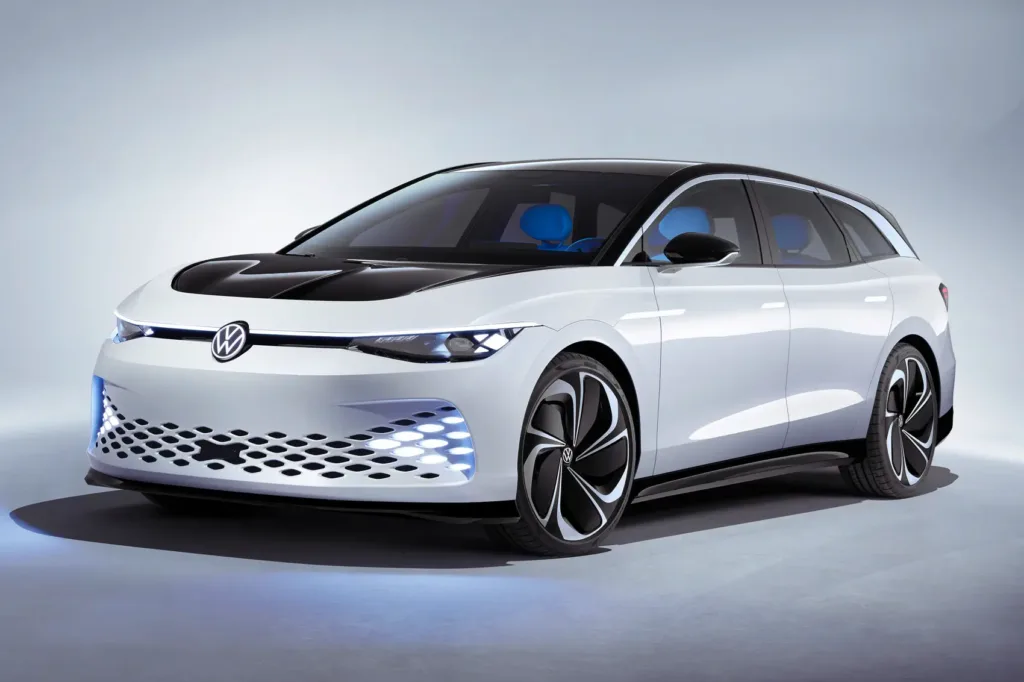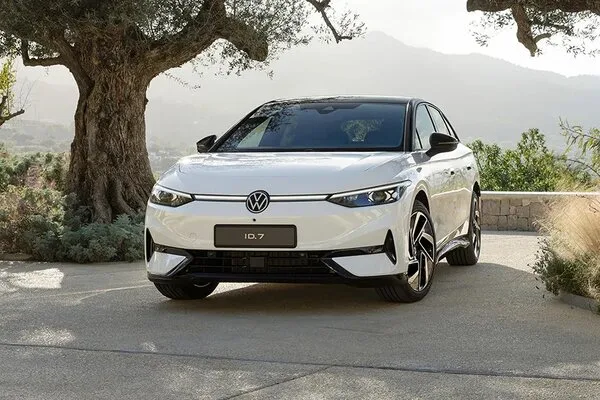VW Group’s Massive Data Leak Exposes 800,000 EV Owners: A Cybersecurity Crisis
In today’s digital-first world, data is the new gold, and protecting it has become a critical challenge for industries across the board. The automotive sector, with its increasing reliance on connected technologies, is no exception. The latest cybersecurity incident involving the Volkswagen Group (VW) has sent shockwaves through the industry, exposing the sensitive data of 800,000 electric vehicle (EV) owners.
This breach, which affected customers of VW, Audi, Seat, and Skoda, highlights the urgent need for automakers to prioritize cybersecurity as vehicles become more connected and reliant on cloud-based services.

What Happened? The VW Data Breach Explained
The data leak originated from a misconfigured Amazon cloud storage system used by Cariad, VW’s in-house software company. This misstep allowed unauthorized access to sensitive information, including:
- GPS Coordinates: Precise location data of vehicles.
- Battery Charge Levels: Real-time battery status.
- Vehicle Status Details: Other operational data tied to the vehicles.
Shockingly, the breach also exposed personal credentials of vehicle owners, making it possible to link location data to specific individuals.
The Scale of the Breach
- 800,000 EV Owners Affected: Across VW, Audi, Seat, and Skoda brands.
- 466,000 Cases of Precise Location Data: Detailed enough to create profiles of owners’ daily routines.
- High-Profile Victims: The list of those affected includes German politicians, entrepreneurs, police officers, and even suspected intelligence service employees.
How the Breach Was Discovered
The breach came to light thanks to an anonymous whistleblower who alerted the Chaos Computer Club (CCC), Europe’s largest hacker association. CCC, known for its ethical hacking efforts, immediately contacted relevant authorities and gave VW Group and Cariad 30 days to fix the issue.
VW’s Response
Cariad’s technical team acted swiftly to block unauthorized access and secure the exposed data. While the response was quick, the incident raises serious questions about the proactive measures automakers are taking to prevent such breaches in the first place.


The Risks: Why This Breach is a Big Deal
This isn’t just a minor cybersecurity hiccup — the implications of this breach are far-reaching and alarming.
1. Privacy Violations
The exposed data allowed anyone with basic technical knowledge to:
- Track Vehicle Movements: Real-time GPS data made it possible to monitor where vehicles were at any given time.
- Profile Owners’ Habits: In 466,000 cases, the data was detailed enough to map out daily routines, including home and work locations.
2. Security Threats
For high-profile individuals like politicians, police officers, and intelligence personnel, this breach could pose serious security risks, including stalking, theft, or worse.
3. Trust Erosion
Incidents like this erode customer trust in automakers, especially as vehicles become more connected and reliant on cloud-based services.
Not an Isolated Incident: A Growing Problem in the Auto Industry
The VW Group breach is not the first of its kind. The automotive industry has faced several high-profile data breaches in recent years:
- Toyota (2023): A breach exposed the data of 2.15 million vehicle owners in Japan.
- Tesla (2022): A whistleblower revealed that Tesla employees had access to sensitive customer data, including video footage from vehicle cameras.
These incidents underscore a troubling trend: as automakers integrate more connectivity features and cloud-based services, they are becoming prime targets for cyberattacks.
Why Automakers Need to Prioritize Cybersecurity
The VW Group breach is a stark reminder that automakers must treat cybersecurity as a top priority. Here’s why:
1. Increasing Connectivity
Modern vehicles are essentially computers on wheels, equipped with features like:
- Real-time navigation
- Remote vehicle monitoring
- Over-the-air (OTA) updates
While these features enhance convenience, they also create vulnerabilities that hackers can exploit.
2. Growing Data Volume
With millions of connected vehicles on the road, automakers are collecting vast amounts of data, including:
- Location history
- Driving behavior
- Personal information
This makes them attractive targets for cybercriminals.
3. Regulatory Pressure
Governments worldwide are introducing stricter data protection regulations, and automakers that fail to comply risk hefty fines and reputational damage.
What Needs to Change?
To prevent future breaches, automakers must adopt a proactive approach to cybersecurity. Here are some key steps:
1. Secure Cloud Infrastructure
Misconfigured cloud systems, like the one in VW’s case, are a common cause of data breaches. Automakers must:
- Conduct regular security audits.
- Implement multi-layered encryption for sensitive data.
- Use AI-driven monitoring tools to detect vulnerabilities in real time.
2. Employee Training
Human error is often the weakest link in cybersecurity. Automakers should:
- Train employees on best practices for data security.
- Establish clear protocols for handling sensitive information.
3. Collaboration with Ethical Hackers
Partnering with ethical hackers and organizations like the Chaos Computer Club can help automakers identify vulnerabilities before malicious actors exploit them.
A Wake-Up Call for the Auto Industry
The VW Group data breach is a stark reminder that the automotive industry must step up its cybersecurity game. As vehicles become more connected, the stakes are higher than ever. Automakers must invest in robust security measures to protect customer data and maintain trust in their brands.
For VW, this incident is a lesson learned the hard way. While Cariad’s swift response is commendable, the breach should never have happened in the first place. Moving forward, automakers must prioritize cybersecurity as a core aspect of their operations — because in the digital age, data protection is non-negotiable.


